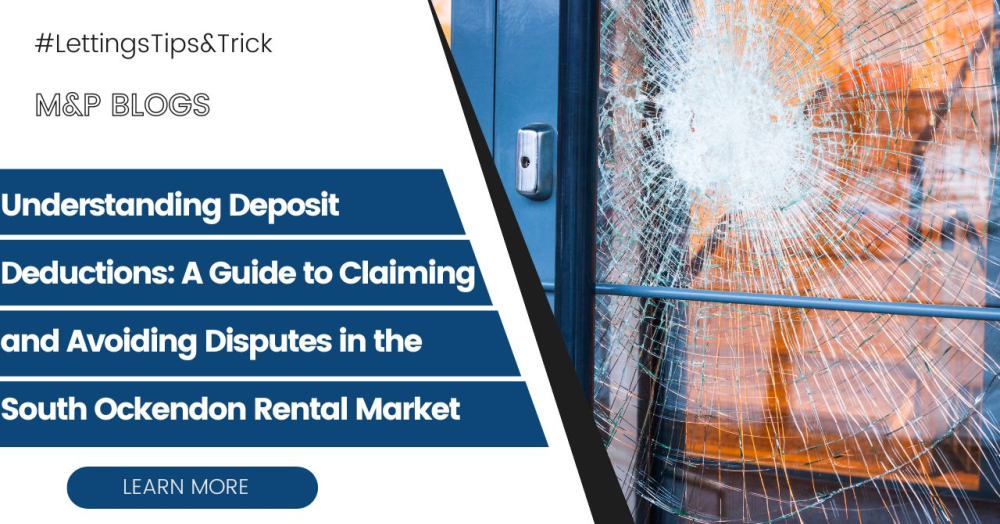Learn the ins and outs of deposit deductions for landlords. From what can be claimed to avoiding disputes, safeguard your property investment.
As a landlord in the UK, navigating deposit deductions can be a crucial aspect of managing your rental property effectively. Understanding what can and cannot be claimed ensures a fair transaction between you and your tenants. Here are key points to consider when deducting from a tenant's deposit:
Unpaid Rent or Bills:
One of the most straightforward deductions a landlord can make is for any outstanding rent or utility bills. It is important to keep a clear record of the amounts owed by the tenant and provide evidence to support the deduction.
Damage Due to Negligence or Recklessness:
Landlords can claim for damages caused by tenants' negligence or reckless behavior. The property should be returned in the same condition as at the start of the tenancy, with allowances made for fair wear and tear.
Missing Items:
Any items that were present in the property at the beginning of the tenancy but are missing at the end may be deducted from the deposit. This includes furniture, appliances, and even smaller items like lampshades or toilet seats.
Cleaning and Gardening:
If cleaning or gardening services were specified in the tenancy agreement and not carried out to the agreed standard, the landlord may deduct the cost of rectifying the situation.
Belongings Left Behind:
Tenants are responsible for removing all their belongings and rubbish at the end of the tenancy. If items are left behind, the cost of removal can be deducted from the deposit.
Lost Rent Due to Early Vacating:
If a tenant vacates the property before the end of the tenancy agreement without the landlord's approval, the lost rent for the remaining period can be deducted from the deposit.
Fair Wear and Tear:
It's essential to differentiate between damage and fair wear and tear. Landlords cannot claim for normal wear and tear that occurs during the tenancy.
Avoiding Disputes and Delays:
To prevent disputes and delays in the deposit return process, estate agents should conduct thorough check-in and check-out inventories, clearly outlining the property's condition and contents. Communication with the tenant throughout the tenancy can also help manage expectations.
Betterment
Understanding the term "betterment" is crucial. As a landlord, you cannot use a tenant's deposit to upgrade the property beyond its original condition. The deposit should only cover the costs required to return the property to its initial state.
By keeping detailed records, conducting thorough property inspections, and establishing clear communication with tenants, landlords can navigate deposit deductions effectively and maintain positive relationships with their tenants.


